Last Updated on August 5, 2021

Welcome to The Best Movie You NEVER Saw, a column dedicated to examining films that have flown under the radar or gained traction throughout the years, earning them a place as a cult classic or underrated gem that was either before it’s time and/or has aged like a fine wine.

This week we’ll be examining John McTiernan’s THE 13TH WARRIOR, based on the novel “Eaters of the Dead” by Michael Crichton.
THE STORY:
In AD 922, an important emissary who is banished from his homeland. The nomadic outcast comes across a band of Norse warriors who coerce him into joining them when they are summoned to fight mysterious creatures legendary for consuming every living thing in their path. Eventually surrounded by the frightening and ferocious foe, Ibn must conquer his personal fears and help battle the illusive invaders–who emerge out of the shroud of fog in the black of the night.
THE PLAYERS:
Based on the 1976 book by author Michael Crichton (JURASSIC PARK), the screenplay was by William Wisher, Jr. (TERMINATOR 2: JUDGMENT DAY) and Warren Lewis. It was directed by John McTiernan (DIE HARD, PREDATOR) and starred Antonio Banderas, Diane Venora, and Omar Sharif, along with a host of unknown European actors, including Vladimir Kulich, Dennis Storhøi, and a host of others.

THE HISTORY:
Author Michael Crichton originally wrote the novel, Eaters of the Dead, in 1976 after hearing a lecture that said the legend of Beowulf was a boring story that couldn’t appeal to modern readers. Crichton took that as a challenge and created Eaters of the Dead, which sought to merge the legend of Beowulf with the travel journals of Ahmad ibn Fadlan, a 10th-century Arab traveler, into a taught, horror-filled adventure tale.
Twenty years later Disney shelled out $100 million to finance a big-budget adaptation of the book, hiring director John McTiernan to helm the pic, casting Antonio Banderas as the lead, who was hot off the recent success of THE MASK OF ZORRO and being primed as an action star leading man. The rest of the cast was pieced together from unknown “Nordic” actors for the Vikings. The production took place mostly in British Columbia with sets being built on location to lend to the realism. The filming conditions were much more harsh than your standard “in studio” film with Banderas getting injured early on (a back injury). Production wrapped in the fall of 1997 at which point its real battle began.
Unhappy with McTiernan’s cut of the film, author Michael Crichton took over the film, shooting his own ending and additional scenes to replace the ones he didn’t like. Strangely, McTiernan did his own reshoots, which were futile, as Crichton somehow had final cut on the film. In the end, Crichton’s version of the film was what was shown to audiences, although it made little difference as the film took two years to get in front of them, at which point Disney had all but written it off, essentially dumping it without promotion.

THE 13TH WARRIOR is one of the early examples of a big-budget film that spiraled out of control, due largely, it seems, to the tug of war that transpired between writer, director, and studio. It’s an intricate affair, to be sure, with a lot of folks remaining mum on the subject, but it seems that the battle ultimately led to the films box office downfall.
The film grossed just $32 million domestically and $61 million internationally, which is still a far cry away from its rumored final budget of $160 million. Reviews were middling, topping out currently at 33 percent on Rotten Tomatoes. However, as time has passed, many have come to appreciate the film for its rugged, visceral, and legendary feel, even if there’s still another version of the film (McTiernan’s cut) sitting in a can somewhere.
WHY IT’S GREAT:
I hated THE 13TH WARRIOR the first time I saw it. I was bored, mostly, and waiting for something different than what I got. When the credits began to roll I felt like McTiernan had dropped the ball, which was no small thing when you consider that he was (and is) my all-time favorite director. I simply could not get past it and I left the theater vowing that I never needed to see the film again.
Then, it hit video, back when I bought anything and everything, so I picked it up and gave it another shot. It was somewhat better since I’d gotten over the initial disappointment, but nothing to forgive what I saw as a failure. Years passed and at some point or another I popped the disc in on a whim and, for whatever reason, I felt like I was seeing a new movie. When it was over after that third viewing I realized that I not only liked it more, but I kind of loved it. How the hell does that happen?
It’s a rare thing, but does happen. Some movies simply age better than others. You miss things. You overlook things. Your expectations were unrealistic or misguided. Your mental state wasn’t what it is now. Whatever. For THE 13TH WARRIOR, I think what I overlooked, more than anything, was the true care and detail that went into making it such a cool f*cking movie.

Following a pompous Arabian ambassador named Ahmed Ibn Fahdlan (Banderas), who is sent far away after seducing another man’s wife, the tale kicks into high gear when Ibn (as he’s called throughout the film) is pulled into a Viking mission to help a kingdom under attack by a mythological creature called The Wendol, also known as the “eaters of the dead.” Led by Buliwyf (Vladimir Kulich) and his team of 12 Vikings, Ibn must face his fears and test his courage (and faith) as he squares off a mysterious enemy that consumes their victims.
McTiernan, who keeps the camera moving and full of energy, has all his signature touches here, even with Crichton dipping his hands in the Kool-Aid. The sweeping dolly shots, the broad shots that look more like a classic painting than a frame of film, and the gritty, Earthy feel that makes you feel like you’re rain-soaked and mud-covered, even while watching it from the comfort of your couch.
The biggest thing I noticed while watching this with new eyes, was that this is a film chock full of practical and in-camera effects. It looks like a movie, not a CGI-filled cinematic. You don’t watch this and play the “that’s fake” game. From the severed heads, blood spatter, costumes, and realistic sets, it feels like you are truly on a journey with 10th Century Vikings. And, with John McTiernan as your guide!

"This is an epic film and we wanted to get that scope on a wider screen, so we shot it with an anamorphic ratio," says Menzies Jr., referring to the wider lens format used to photograph a horizontally extended image. "We did mount the camera onto modern vehicles and steadicams, and we used planes as well for some photography. Yet the audience still needs to be involved in the action and to move with the story, so we did a great deal of hand-held work which gave it that very involving, third-person sort of feel." – Peter Menzies, Jr., Director of Photography
There were complaints about Banderas early on as he portrays a faith-based Muslim, some saying that he wasn’t “badass” enough. To that, I can only say that they missed the point. Banderas’ Ahmed Ibn Fahdlan isn’t supposed to be a badass, but a man who becomes a warrior by facing his fears and overcoming them. He’s not a seasoned veteran at the opening of the film, but rather a flimsy, blasé ambassador who gets pushed into something he never expected. By the end of the film, he’s gone through a journey, instead of just showing up, swinging a sword, and going home.
The mythological aspects of the film are another thing that I’ve come to appreciate over time. The “reimagining” of Beowulf is evident from the get go and it’s woven into the narrative in a way that makes it feel new, rather than stale. The evolutionary aspect of the Wendol is a lot of fun, particularly as the truth of these “creatures” is revealed. That said, the story is choppy, with both a romantic and political subplot developing early on and then disappearing entirely by the end, which can likely be attributed to the tug of war between the studio, Crichton, and McTiernan.
As we push further and further into CGI territory and films like this are made less and less, my appreciation continues to grow for it. As cliche as it sounds; they just don't make 'em like this anymore. There are some genuinely cool moments, particularly the first confrontation with The Wendol, the sneak attack in the caves, and of course, the final battle in the village. Coupled with Jerry Goldsmith’s score (who replaced Greame Revell when Crichton “took over”), which I view as his last “great” one, this is a memorable slow burn of a film, which has joined the halls of my movie Valhalla forever.
Although I still hope to see McTiernan’s cut someday, it’s unlikely we ever will, especially with the famed director currently being stuck in prison and Crichton having died in 2008. Still, both men have left behind a very misunderstood and misrepresented film that is magnificent in all its imperfections and one of the best tales in the genre.
"I had never thought of anyone seeing this as a film. From a filmmaker's perspective, it is obscurely written and there is no effort in the book to bring any one narrative line to the surface. Yet I was entertained a lot when John McTiernan saw so clearly what the film story could be." – Michael Crichton
BEST SCENE:
I’ve dropped a couple scenes in there that are worth checking out, but the preparations for battle scene at the end is the one that always sticks out in my mind. Surrounded by The Wendol with the odds against them, the Vikings prepare to fight to the death with Ibn making his final call to prayer before reciting the Viking prayer as their attackers descend upon them. It’s a chest-beating moment and the clincher for Ibn, who is no longer trying to hide from being a warrior, but finally accepting it as death seems imminent. With Goldsmith’s score building the moment with each second it’s a truly rousing, kick ass scene.
SEE IT:
THE 13TH WARRIOR is available on DVD only as of now. Hopefully, there will be a blu-ray version released sometime in the near future, but I won’t hold my breath. Get the DVD here!
PARTING SHOT:
"John had a terrific vision of this film and he had the consistency and the passion to bring it into being, despite so many challenges. I think he is telling a very different story here. It's a classic done in a new key that is really contemporary and accessible. He immediately brings you into the story and takes you on this incredibly enjoyable and wild ride that everyone can enjoy." – Ned Dowd, producer
Check out the original trailer for the film, back when it was still called EATERS OF THE DEAD. It really teases the imagination of what McTiernan's cut may be…
And for a really in-depth look at the trouble production and ugliness of the struggle to get the film in theaters, check out this surprisingly candid making-of, featuring interviews with cast crew. Some really great stuff in here and well worth the watch…






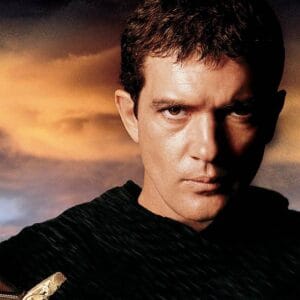
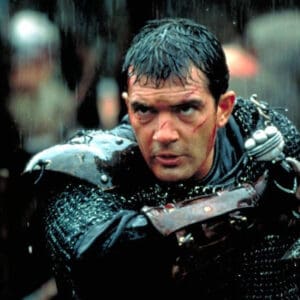
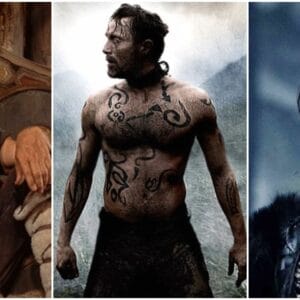







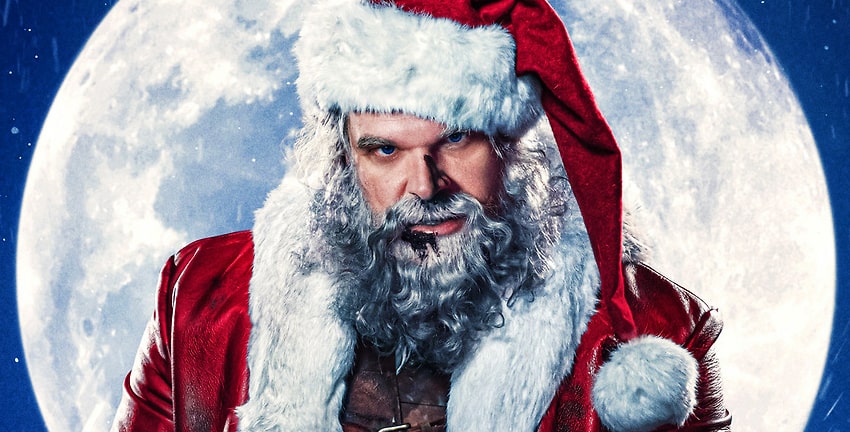


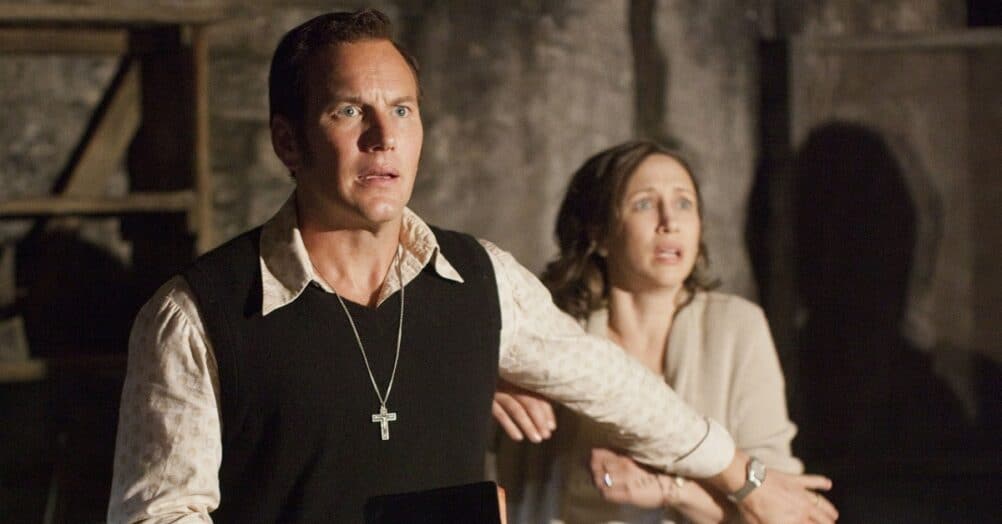
Follow the JOBLO MOVIE NETWORK
Follow us on YOUTUBE
Follow ARROW IN THE HEAD
Follow AITH on YOUTUBE